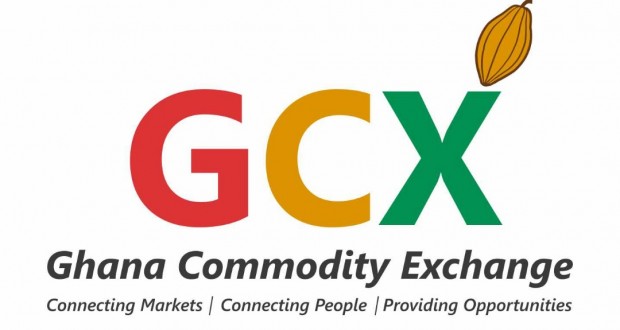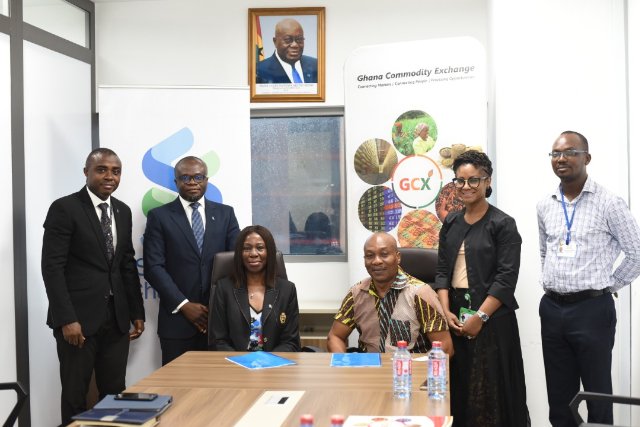The determination to promote local rice production and consumption seems ongoing. In a latest development local rice is to receive a further boost.
Arrangements are in place for local rice to find its way on the Ghana Commodity Exchange.
The Ghana Commodity Exchange (GCX)
GCX is a regulated market that links buyers and sellers of commodities to trade by the rules while assuring the market of quality, timely delivery, and settlement.
The institution is a private limited liability company. Currently, the Government of Ghana is its sole shareholder, owning 100% of shares. The Exchange commenced operations in the early part of 2019. In its first 12 months of operation, it intends to trade staple foods including maize, soybean, rice, dry beans, millet, sorghum, and groundnut
It is thus seeking clearance and certification from Securities and Exchange Commission to trade local rice. By December 2019 it will commence the listing and trading of local rice on its product offerings. After the clearance, GCX expects to list approximately one million tonnes of local rice.
GCX to trade local rice in paddy or mill form
The CEO of the Exchange, Dr. Kadri Alfah, disclosed the arrangements to list Ghana rice as one of their commodities by the end of the year He stated, “So by the end of this year, Ghana Commodity Exchange will be trading rice. We’re going to be listing Paddy rice and Mill rice. We’re just asking SEC to give us permission to trade rice, so it’s not really SEC’s problem. Before we applied to trade it, we had to undertake an extensive feasibility studies, and we also had to consult the industry. Then we had to do others things. We started doing them, and hopefully by the end of the year, we should have rice listed.”
In another development, the Ministry of Food and Agriculture, Rice Millers, the Food and Beverages Association of Ghana, and some financial institutions have also discussed technicalities pertaining to the arrangement. Following discussions, local rice millers expect to process 350000 tonnes of local rice. This is as an import substitution measure,
The agreement is under the support of local rice production advocacy groups, JAK Foundation, and HopeLine institute.
As with other agricultural sectors, financial support is one big challenge facing the local rice sector. Hence it has come as a relief to farmers to have financial and trading institutions like the Ghana Commodity Exchange, come together to meet the needs of millers. So as to get local rice on the Ghana Commodity Exchange platform.
How will GCX trade Ghana rice?
The trading activities will begin with registration of farmers, brokers and buyers as members of the trading activities. The Exchange will provide warehousing services where rice farmers will deposit their physical stock. Warehouses will store paddy rice or mill rice until a buyer acquires them. A farmer can alternatively trade the rice under storage at agreed discounted price cash with partner financial institutions if it becomes necessary.
In this case, the farmer will submit a receipt showing proof of ownership to the financial institution. The institution in turn will offer cash at a discount value in exchange for the rice in storage.
Benefits
Benefits include warehousing services and easy accessibility to cash when farmers require. This is a far cry from the problem we recently witnessed with no ready market for heaps of rice harvested rice.
The CEO of GCX further explains, “It’s going to give a huge boost to the sector. Some of the problems the sector is facing currently include quality. Whatever is traded on the Exchange, the quality is defined with the industry and they’re accepted. They are part of the products that will be listed on the Exchange”.
Some rice farmers are elated about the Ghana Commodity Exchange’s commitment. They also indicate that they have the capacity to produce for the needed demand.“I think its fantastic news; when Commodity Exchange always comes in; it comes in with some sort of liquidity. It puts markets and buyers together so that the person who has and the person who has the money, have a common front. This eliminates geographical challenges. It’s a welcoming addition to the coalition that we’re trying to build” CEO of Strongmen Food and Farms, Kwadwo Ofori Ampomah said.
In view of this, Government has announced plans to ban the importation of rice by 2022. In order to boost local rice production.
A Deputy Minister of Food and Agriculture, Kennedy Osei Nyarko, who gave the hint, said the move is to reverse the significant amount of foreign rice consumed by Ghanaians. Also, there are discussions between Ministry of Food and Agriculture and major rice importers. This is to harness support of local rice production in the country.
There is further support from the Ghana National Buffer Stock Company. It will make licensed buying companies purchase all rice produce going bad.







